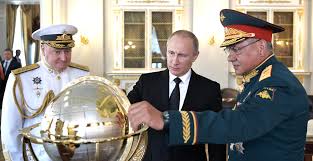Eurasianism, a political and cultural ideology that emerged in early 20th-century Russia, advocates for the unity of the Eurasian landmass, particularly the territories of the former Soviet Union. It is a complex and multifaceted ideology that has evolved over time, shaped by various historical, political, and cultural factors.
Core Tenets of Eurasianism
At its core, Eurasianism is rooted in the belief that Russia’s destiny is inextricably linked to the broader Eurasian continent. Key tenets of Eurasianism include:
- Geopolitical Unity: Eurasianists argue that Russia’s geopolitical interests lie in uniting the diverse cultures and peoples of Eurasia, from Western Europe to East Asia.
- Cultural Synthesis: They advocate for a synthesis of Eastern and Western cultures, positioning Russia as a bridge between these two worlds.
- Anti-Western Sentiment: Many Eurasianists harbor skepticism or outright hostility towards Western values and institutions, viewing them as a threat to Russia’s unique identity and sovereignty.
- Imperial Ambitions: Some Eurasianists support the restoration of the Russian Empire or the Soviet Union, advocating for a powerful, centralized state that can project its influence across the Eurasian landmass.
Historical Context
Eurasianism gained prominence in the early 20th century, particularly among Russian intellectuals who were disillusioned with Western liberalism and Marxism. Figures like Nikolai Trubetzkoy and Lev Gumilyov were instrumental in developing the core tenets of this ideology.
During the Soviet era, Eurasianism was suppressed by the Communist regime. However, it experienced a resurgence in the post-Soviet period, particularly among nationalist and conservative circles.
Eurasianism in Contemporary Russia
Eurasianism has had a significant impact on Russian foreign policy and domestic politics. It has been used to justify Russia’s assertive foreign policy, particularly in its relations with neighboring countries and the West. Some analysts argue that Eurasianism has contributed to the rise of Russian nationalism and authoritarianism.
However, Eurasianism is not a monolithic ideology. There are various interpretations and factions within the Eurasianist movement. Some proponents advocate for a more moderate and inclusive approach, emphasizing cooperation and dialogue with other Eurasian countries. Others embrace a more radical and expansionist vision, advocating for a strong and assertive Russia that can shape the future of the Eurasian continent.
Criticisms of Eurasianism
Critics of Eurasianism argue that it is a reactionary ideology that promotes isolationism, authoritarianism, and a nostalgic view of the past. They also point out that the concept of a unified Eurasia is unrealistic, given the vast cultural, linguistic, and religious diversity of the region. Furthermore, critics argue that Eurasianism can be used to justify aggressive foreign policies and territorial ambitions.
In conclusion, Eurasianism remains a significant force in Russian political thought and foreign policy. While its influence may vary over time, it continues to shape Russia’s self-perception and its relations with the wider world.

Leave a Reply